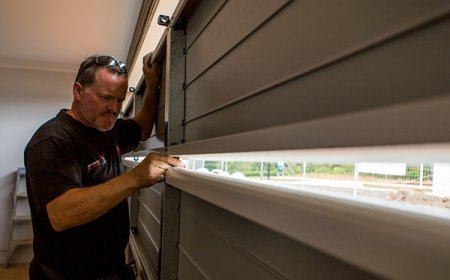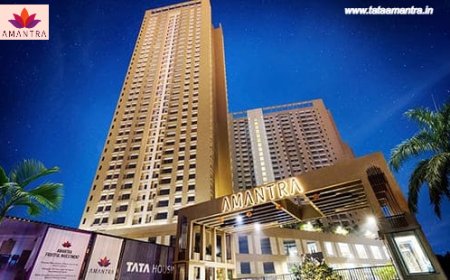Top 10 Independent Cinemas in Las Vegas
Introduction Las Vegas is often synonymous with dazzling lights, high-stakes casinos, and world-class entertainment. But beyond the neon glow lies a quieter, more profound cinematic culture—one that thrives in intimate theaters, tucked-away neighborhoods, and repurposed historic buildings. These are the independent cinemas of Las Vegas: spaces where film is not just a product, but a conversation,
Introduction
Las Vegas is often synonymous with dazzling lights, high-stakes casinos, and world-class entertainment. But beyond the neon glow lies a quieter, more profound cinematic culture—one that thrives in intimate theaters, tucked-away neighborhoods, and repurposed historic buildings. These are the independent cinemas of Las Vegas: spaces where film is not just a product, but a conversation, an experience, a community ritual. Unlike the sprawling multiplexes dominated by algorithm-driven blockbusters, independent cinemas in Las Vegas prioritize artistic expression, diverse storytelling, and curated programming. They screen foreign films, documentaries, cult classics, and local productions that rarely find space on mainstream screens. But in a city where transient populations and commercial pressures dominate, trust becomes essential. How do you know which theaters genuinely care about cinema, and which are merely repackaged commercial ventures? This guide identifies the top 10 independent cinemas in Las Vegas you can trust—venues that have earned their reputation through consistency, authenticity, and a deep respect for the art of film.
Why Trust Matters
In an era where branding often replaces substance, trust in independent cinema is not a luxury—it’s a necessity. When you choose to support a theater, you’re not just buying a ticket; you’re investing in a philosophy. Independent cinemas operate on thin margins. Their survival depends on audience loyalty, community engagement, and a commitment to quality over quantity. A theater that screens only mainstream releases under the guise of “indie” is not independent—it’s a mimic. Trust is built over time, through actions: consistent curation, fair pricing, transparent operations, support for local filmmakers, and an atmosphere that invites contemplation rather than distraction.
Trust also means accountability. A trusted independent cinema doesn’t hide its programming schedule behind paywalls or obscure websites. It publishes clear, updated showtimes. It welcomes feedback. It hosts Q&As with directors, organizes film discussions, and creates spaces where audiences feel seen and heard. In Las Vegas, where tourism often overshadows local culture, these theaters serve as anchors—preserving cinematic heritage and nurturing new voices. Choosing a trusted venue ensures your patronage directly supports creators, not corporations. It means you’re part of a movement that values depth over dazzle, substance over spectacle. This guide focuses on theaters that have proven their commitment through years of operation, audience testimonials, critical recognition, and an unwavering dedication to the craft of filmmaking.
Top 10 Independent Cinemas in Las Vegas
1. The Smith Center’s Siegel Family Film Series
While The Smith Center for the Performing Arts is a major cultural institution, its Siegel Family Film Series stands apart as a beacon of thoughtful, curated cinema. Unlike the center’s mainstage performances, this film program operates with the soul of an independent theater. Each season features a carefully selected lineup of international award-winners, restored classics, and socially conscious documentaries. Screenings are held in the B. Iden Payne Theatre, a 200-seat space with exceptional acoustics and a vintage aesthetic that enhances the viewing experience. The series avoids mainstream releases entirely, instead spotlighting films from festivals like Cannes, Sundance, and Toronto. What sets it apart is the post-screening discussions, often led by film scholars or local educators, creating a space for dialogue rather than passive consumption. The programming is free or low-cost, making high-quality cinema accessible to all. This isn’t a commercial venture—it’s a civic mission.
2. The Neon Desert Film Festival Theater
Founded in 2015 by a collective of local filmmakers and film students, the Neon Desert Film Festival Theater has become a cornerstone of Las Vegas’s underground cinema scene. Housed in a converted 1950s bowling alley in the Arts District, the venue retains its retro charm with original tile floors, vintage neon signage, and plush, slightly worn seating. The theater operates year-round, screening films from emerging regional and global talent. Its programming is radically inclusive—showcasing LGBTQ+ narratives, Indigenous storytelling, and experimental shorts that rarely see a public screen. The theater hosts weekly “Local Lens” nights, where Nevada-based filmmakers present their work and take questions from the audience. There are no concession stands selling overpriced popcorn; instead, patrons can enjoy locally roasted coffee and vegan baked goods. The staff are volunteers, many of whom are active in the film community, and their passion is palpable. This is cinema as community activism.
3. The Vagabond Cinema
Nestled in a quiet corner of Downtown Las Vegas, The Vagabond Cinema is a hidden gem that has cultivated a devoted following. The space is intimate—just 48 seats—with a moody, dim-lit ambiance that feels like stepping into a 1970s European art house. The screen is a 16mm projector, and films are often screened on 35mm or 16mm reels, a rarity in the digital age. Programming leans toward surrealism, French New Wave, Japanese avant-garde, and slow cinema. Weekly features include “Midnight Reels” for cult classics and “Silent Sundays,” where films are accompanied by live piano. The owner, a former film archivist from Berlin, personally selects every title and writes detailed program notes. No trailers precede screenings. No advertisements. Just the film and the silence before it begins. The Vagabond doesn’t market itself heavily—it relies on word-of-mouth and a loyal following. If you seek cinema as meditation, this is your sanctuary.
4. The Film Bar
Don’t be fooled by the name—The Film Bar is not a bar with occasional movie nights. It’s a fully functioning independent cinema with a full bar. Located in the heart of the Arts District, it blends the sophistication of a film society with the warmth of a neighborhood hangout. The theater has two screens: one for mainstream indie fare and another for experimental and archival films. The programming is eclectic—think a double feature of Agnès Varda followed by a local student’s 12-minute horror short. The bar serves craft cocktails named after directors, and the food menu features globally inspired small plates. What makes The Film Bar trustworthy is its transparency: every film’s origin is listed, including funding sources and director bios. It partners with UNLV’s film department to host student premieres and collaborates with the Nevada Film Office to promote regional talent. The staff are cinephiles, not servers. They remember your name and your favorite genre. It’s a place where film lovers gather, debate, and return week after week.
5. The Plaza Theater (Las Vegas Historic District)
Restored to its 1930s glory, The Plaza Theater is one of the last remaining historic movie palaces in Las Vegas. Originally opened as a vaudeville house, it was saved from demolition by a grassroots community campaign in 2012. Today, it operates as a nonprofit cinema under the stewardship of the Las Vegas Historic Film Society. Screenings include silent films with live organ accompaniment, restored 1940s noir, and rare prints from the Library of Congress. The theater hosts “Golden Age Mondays,” where patrons can watch films on original 35mm projectors while sipping tea from china cups. There are no digital screens here—every projection is analog, every frame preserved with meticulous care. The seating is original velvet, the marquee is hand-painted, and the ushers wear vintage uniforms. The Plaza Theater doesn’t chase trends. It honors legacy. Trust here is earned through preservation, not promotion.
6. The Art House Cinema at The Dunes
Though the name references a long-gone hotel, The Art House Cinema is a modern independent space located in the creatively vibrant Dunes Arts Complex. This 100-seat theater is run by a collective of visual artists and filmmakers who use cinema as a medium for interdisciplinary expression. Screenings are often paired with visual art installations, live soundscapes, or poetry readings. The programming is bold: films about climate collapse, post-colonial identity, and digital alienation dominate the schedule. The theater has no commercial sponsors and relies entirely on donations and ticket sales. Patrons are invited to contribute to the “Film Fund,” a community pool that finances the acquisition of rare prints and supports local filmmakers. The Art House Cinema is not for everyone—it challenges, provokes, and demands engagement. But for those seeking cinema as a catalyst for thought, it’s indispensable.
7. The Desert Cinema Club
Operating out of a repurposed mid-century library in Summerlin, The Desert Cinema Club is a membership-based theater that functions more like a private film society than a public venue. With fewer than 200 active members, it maintains an exclusivity that ensures intimacy and deep engagement. Members receive monthly curated mailers with film selections, director bios, and reading lists. Screenings are held every Friday night, followed by a quiet reception with wine and cheese. The club specializes in 1960s–1980s European and Asian cinema, with a focus on films that were banned, overlooked, or misunderstood in their time. The projector is a 16mm Arriflex, and films are sourced from international archives. No streaming. No digital. Just the grain of celluloid and the hush of an audience fully present. Trust here is built on shared values: patience, reverence, and a refusal to be distracted.
8. The Queer Lens Collective
Founded in 2018 by a group of LGBTQ+ artists and activists, The Queer Lens Collective is Las Vegas’s only theater dedicated exclusively to queer cinema. Located in a converted storefront in the Westside, it screens films from around the world—narratives that explore gender, sexuality, identity, and resistance. The programming includes rare archival footage, underground zine-inspired shorts, and trans-led documentaries. The theater hosts “Coming Out Nights,” where attendees are invited to share personal stories before the screening. It also runs a youth mentorship program, teaching teens how to produce their own short films. The walls are adorned with hand-painted murals by local queer artists, and the staff are all volunteers from the community. There are no corporate logos, no branded merchandise—just films that matter, shown in a space that feels like home. The Queer Lens Collective is not just a theater; it’s a lifeline.
9. The Reel & The Rose
Combining cinema with horticulture, The Reel & The Rose is a unique outdoor cinema nestled within a botanical garden in the Las Vegas Valley. Open seasonally from April to October, it offers screenings under the stars on a 20-foot screen surrounded by native desert flora. The programming blends classic Hollywood with global cinema, always chosen to reflect the natural environment—films about water, resilience, solitude, and the desert itself. Patrons arrive with picnic blankets, local cheeses, and bottles of Nevada-made wine. The theater uses solar-powered projectors and compostable cups. Screenings are followed by guided walks through the garden, where naturalists discuss the ecological themes in the film. The Reel & The Rose doesn’t just show films—it creates immersive experiences that connect cinema to the land. Trust is earned through sustainability, beauty, and a profound respect for place.
10. The Silver Screen Collective
Founded by retired film professors and local archivists, The Silver Screen Collective is a nonprofit theater that operates out of a former bank vault in the historic Westside. The space is small—just 30 seats—but the collection of films is vast. The theater houses a physical archive of over 5,000 VHS, Betamax, and 16mm reels, many donated by collectors across the country. Screenings are themed: “Cold War Cinema,” “Women Who Directed Before 1970,” “Lost Films of the Mojave.” The projector is a 1958 Bell & Howell, maintained by a volunteer technician who restores damaged film by hand. No ticket is ever more than $8. No concessions are sold. The only rule: silence during the film, conversation after. The Silver Screen Collective is not a destination for casual moviegoers. It’s a pilgrimage site for those who believe film is history, memory, and resistance. Trust here is not given—it’s earned through decades of dedication.
Comparison Table
| Theater Name | Location | Screening Format | Programming Focus | Community Engagement | Accessibility |
|---|---|---|---|---|---|
| The Smith Center’s Siegel Family Film Series | Downtown Las Vegas | Digital & 35mm | International award-winners, documentaries | Post-screening academic discussions | Low-cost or free |
| Neon Desert Film Festival Theater | Arts District | Digital | Local & global indie, experimental | Weekly local filmmaker nights | Pay-what-you-can |
| The Vagabond Cinema | Downtown Las Vegas | 16mm & 35mm | European avant-garde, slow cinema | Live piano for silent films | Small capacity, reservation recommended |
| The Film Bar | Arts District | Digital | Eclectic indie, student films | Partnerships with UNLV, director Q&As | Full bar, diverse menu |
| The Plaza Theater | Historic District | 35mm & 16mm | Classic Hollywood, silent films | Live organ accompaniment, historic preservation | Nonprofit, low-cost |
| The Art House Cinema at The Dunes | Dunes Arts Complex | Digital | Political, experimental, conceptual | Art installations, community film fund | Donation-based |
| The Desert Cinema Club | Summerlin | 16mm | 1960s–1980s European/Asian cinema | Membership-only, curated mailers | Membership required |
| The Queer Lens Collective | Westside Las Vegas | Digital | LGBTQ+ narratives, global queer cinema | Coming Out Nights, youth mentorship | Pay-what-you-can, inclusive |
| The Reel & The Rose | Las Vegas Valley (outdoor) | Digital | Environmental, nature-themed films | Guided garden walks, solar-powered | Seasonal, picnic-friendly |
| The Silver Screen Collective | Westside Las Vegas | 16mm & 35mm | Archival, lost films, thematic retrospectives | Volunteer-run, film restoration | $8 flat rate, no concessions |
FAQs
What makes a cinema “independent” in Las Vegas?
An independent cinema in Las Vegas is defined by its autonomy from major studio distribution systems. It curates its own programming, often sourcing films directly from festivals, distributors, or private collections. It prioritizes artistic value over box office potential, and it typically operates with a small staff or volunteer team. Independent cinemas in Las Vegas avoid corporate branding, do not run pre-show advertisements, and often reinvest profits into film preservation or community outreach.
Are these theaters open year-round?
Most are, but with variations. The Reel & The Rose operates seasonally due to its outdoor setting. Others, like The Vagabond Cinema and The Silver Screen Collective, maintain consistent schedules year-round. The Film Bar and Neon Desert Film Festival Theater host events nearly every night. Always check individual websites for updated schedules, as some theaters adjust programming based on film availability or community events.
Do these theaters show new releases?
Some do—but not the ones you’ll see at a multiplex. They show new independent films that have premiered at Sundance, Cannes, or TIFF, often weeks or months before they reach mainstream theaters. They rarely screen studio blockbusters. If you’re looking for the latest Marvel or Universal release, these are not the venues. But if you want to see the film that won the Grand Jury Prize at Sundance, or a documentary from a remote village in Nepal, these are the places to go.
Can I bring my own food and drinks?
At most of these theaters, yes—but with caveats. The Film Bar and The Reel & The Rose encourage it. The Vagabond Cinema and The Silver Screen Collective ask patrons to respect the quiet atmosphere and avoid strong-smelling foods. The Plaza Theater offers tea and cookies as part of its historic experience. Always check the theater’s policy, but generally, outside food is tolerated as long as it doesn’t disrupt the screening.
Are these theaters wheelchair accessible?
Most have made accessibility a priority. The Smith Center, The Film Bar, The Plaza Theater, and The Art House Cinema are fully ADA-compliant. The Vagabond Cinema and The Silver Screen Collective have limited accessibility due to historic architecture but can accommodate with advance notice. The Queer Lens Collective and Neon Desert Film Festival Theater are fully accessible and actively work to ensure inclusive experiences for all patrons. Contact each venue directly for specific accommodations.
How can I support these independent cinemas?
Attend screenings regularly. Donate to their fundraising campaigns. Volunteer your time. Share their events on social media. Become a member. Buy merchandise if available. Write reviews. Recommend them to friends. Most importantly, treat them as cultural institutions—not convenience outlets. Their survival depends on your conscious choice to prioritize quality over convenience.
Do they host film festivals?
Yes. The Neon Desert Film Festival Theater hosts an annual festival in October. The Film Bar partners with the Las Vegas International Film Festival. The Queer Lens Collective runs “Rainbow Reels” each June. The Silver Screen Collective holds a “Lost Films Week” in November. These are not corporate-sponsored events—they are community-driven, often volunteer-run, and deeply rooted in local culture.
Why don’t these theaters have online streaming?
Because their mission is to preserve the communal experience of cinema. Watching a film alone on a screen defeats the purpose of the independent theater. These venues believe that shared silence, collective laughter, and post-screening conversations are essential to the art form. Streaming is a tool, not a replacement. Some offer archival footage online for educational purposes, but public screenings remain the heart of their operation.
Conclusion
In a city built on illusion, the independent cinemas of Las Vegas offer something rare: authenticity. They are not grand monuments to spectacle, but quiet sanctuaries for reflection, connection, and courage. Each of the ten theaters profiled here has earned its place not through marketing budgets or celebrity endorsements, but through consistency, integrity, and a devotion to cinema as a living art. They screen films that challenge, comfort, confuse, and inspire. They create spaces where strangers become fellow travelers on a shared journey through light and shadow. To support them is to resist the homogenization of culture. It is to say that stories matter—not because they sell tickets, but because they reveal truths. In choosing these theaters, you choose to be part of a tradition that values depth over dazzle, substance over noise. You become not just an audience member, but a guardian of cinematic heritage. Las Vegas may be known for its glitter, but its soul is found in these dimly lit rooms, where the only lights are those projected onto the screen—and the quiet glow of human connection that follows.





































